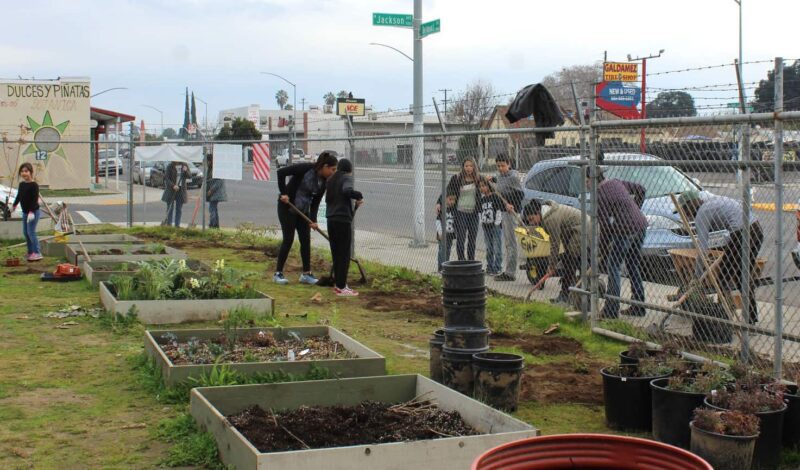New report examines how assessing local information needs increases civic participation and helps new media ventures thrive
There is a paradox at the heart of local news today. Local reporting is more sought-after than ever – amid the COVID-19 pandemic, interest in local information surged around the world – yet the financial outlook for local independent media has never been more bleak. In the absence of trusted outlets which might once have made sense of the pandemic for their local communities, people turned to social media and found themselves in the midst of the infodemic.
A new report by Impact Architects examined the outcomes of investments by the James Irvine Foundation in support of Internews’ Listening Post Collective in California, seeking to understand how deep listening, civic-minded media, and new approaches to information sharing could help new local media ventures to reach underserved audiences.
The results are promising: uSpark Valley, an outlet covering Central Valley politics for Millennial and Gen Z residents on social media, and one of the local outlets supported with seed funding, saw not only a growing audience with investment from the project, but an engaged audience. Readers reported they voted, donated to local nonprofits, and attended local government meetings for the first time, as a result of information from uSpark Valley.
Readers reported they voted, donated to local nonprofits, and attended local government meetings for the first time.
Listen First: The Path to an Effective Media Model
Fresno is California’s poorest major city and suffers from a massive income disparity separating Black and Latinx residents from more well-off White residents. The Listening Post Collective’s first objective was to understand the information ecosystem of Fresno. This means answering questions like “What information is available? In what languages? How do people get information? Do they have news sources they trust? What vital information do they need which they are not getting?
This information is mapped and analyzed through an Information Ecosystem Assessment (IEA), a participatory research method developed by Internews to understand the varied sources, influences, and unique local characteristics of how communities produce and consume information.
The Information Ecosystem Assessment methodology delivers impact by sharing the findings with the community, co-designing new news and information products that respond to the conditions mapped in the analysis, and supporting these new media ventures with guidance and mentorship.
Listening Post Collective’s Fresno IEA was released in 2019 and followed by a series of briefings for news outlets, officials, and citizens at public gatherings. The assessment revealed that many people had ideas for how to fill reporting gaps and stay better informed: neighborhood civic calendars, live newscasts at school meetings and food giveaways, Spanish-language news bulletins for rural communities and more. The public release of the assessment was followed by a call for proposals – to the community, for the community – to respond to information needs. Selected grantees then received a year of hands-on mentorship from the Listening Post Collective, who provided support and guidance on community engagement, editing, publishing, partnerships, and development.
uSpark Valley Builds Community Engagement
Among grantees, uSpark Valley stands out for the enthusiastic engagement it received from its target audience.
uSpark Valley is a Millennial- and Gen Z-focused start-up that publishes directly to social media, with an estimated audience of at least 10,000 residents. uSpark is unique as a news organization in that its content is a mix of journalistic reporting and audience action items — including links to information about attending city council meetings, information about protests and marches, and direct fundraising campaigns in response to community disasters.
Research examining the impact of uSpark Valley found:
- 91% of respondents said they access news and information from uSpark at least once a week, suggesting that uSpark is meeting its audience’s information needs.
- uSpark’s audience relies on it for coverage of a variety of issues, but especially for voting (82%), community events (74%), and health (60%) – critical in a year with an important election and a global pandemic.
- 76% of respondents trust uSpark more than other publications.
Further, uSpark’s audience relayed concrete actions they’d taken as a result of information received. One respondent said,
“The Black Lives Matter info [USpark provided] prompted my first comments on a city council meeting.”
And another described their first participation in a local government meeting:
“When USpark talked about budget hearings, I went to the Zoom meeting and did some more research into what the city was doing with their budget. I wouldn’t have known without uSpark.”
Recommendations
Information Ecosystem Assessments, like the one completed in Fresno, map the current state of information in a community, and can serve as a roadmap for future investment and development of local, community-led information ventures. Internews has delivered Information Ecosystem Assessments in dozens of countries across the globe, including Lebanon, Zambia, Myanmar and South Sudan. In the US, the Listening Post Collective team has conducted nine Information Ecosystem Assessments since 2013.
Impact Architects’ research found that multiple community stakeholders continue to use the IEA to inform their own work. Stakeholders found that the IEA methodology reached more members and aspects of the community than any single Fresnobased organization could do alone.
To advance the outcomes of the IEA, the research suggests that more hands-on strategic support for partners to use and implement the findings of the IEA in their own product development, as well as support for long-term sustainability strategies and follow- on IEAs that could benefit target communities.
Information Ecosystem Assessments are a methodology developed by Internews. In Fresno, CA, Internews’ work under the Listening Post Collective project was supported by the James Irvine Foundation.
